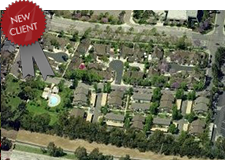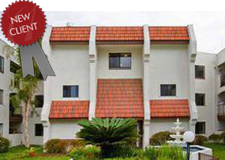Arbitration provision contained in developer’s CC&Rs is not binding contract term…
Villa Vicenza Homeowners Association v. Nobel Court Development, LLC
(2011) WL 72200
OPINION, BENKE, Acting P.J.
*1 In this case the developer of a condominium project recorded a declaration of covenants, conditions and restrictions (CC & R’s) which required that a homeowners association arbitrate any construction defect claim the association might have against the developer. As we explain more fully below, we find CC & R’s are not an effective means of obtaining an agreement to arbitrate a homeowners association’s construction defect claims against a developer.1
Although both federal and state law favor the enforcement of arbitration agreements, neither federal nor state law countenance imposition of arbitration where no agreement to waive judicial remedies exists. Admittedly, in other circumstances our cases and Civil Code section 1354 treat CC & R’s as equitable servitudes which bind homeowners and homeowners associations with respect to claims they may have against each other. This treatment of CC & R’s is not based on any determination the parties bound by them are in privity of contract with either their co-owners or a homeowners association. Rather, CC & R’s are made binding in disputes between homeowners or between homeowners and a homeowners association because of their shared and continuing interest in the equitable and efficient operation of common interest developments. Here, the recorded CC & R’s, standing alone, are not a contract between the developer and the homeowners association, which only came into existence after the CC & R’s were recorded. Thus here there has been no showing the association entered into a binding arbitration agreement. Accordingly, the trial court did not err in denying the developers’ motion to compel arbitration.
FACTUAL AND PROCEDURAL BACKGROUND
Nobel Court Development, LLC (Nobel), purchased the 418 apartments, common areas, and common facilities which make up the Villa Vicenza project in 2004 and converted the apartments to condominiums in 2005. In the course of making the property a condominium project, Nobel recorded CC & R’s under which the Villa Vicenza Homeowners Association (the Association) came into existence upon the sale of the first condominium. By deed Nobel also transferred ownership of the common areas and common facilities to the Association. No consideration was provided by the Association to Nobel and the Association did not execute any documents in favor of Nobel in connection with the deed transferring the common areas and common facilities to the Association. In pertinent part, the CC & R’s require that both condominium owners and the Association arbitrate any claims they have against the developer.
Because following the first sale Nobel controlled the board of directors of the Association and because the initial condominium buyers noticed defects in common areas and common facilities and did not believe Nobel had provided a reserve fund sufficient to repair the defects, the condominium owners brought a derivative action on behalf of the Association against Nobel.2 Later, an independent litigation committee of the Association was appointed and filed a cross-complaint against Nobel. The committee alleged claims for breach of implied warranty, strict liability, negligence and as the third-party beneficiary of express and implied warranties Nobel made to individual homeowners. Following unsuccessful efforts to mediate the Association’s claims, Nobel filed a motion to compel arbitration under the provisions of the CC & R’s. The trial court denied the motion with respect to the bulk of the Association’s claims, but compelled arbitration of the express warranty claims. Nobel filed a timely notice of appeal. (Code Civ. Proc., § 1294, subd. (a).)
Continue Reading ›
 We are proud to announce that Park Vista Maintenance Association has selected Tinnelly Law Group as their association’s legal counsel.
We are proud to announce that Park Vista Maintenance Association has selected Tinnelly Law Group as their association’s legal counsel. HOA Lawyer Blog
HOA Lawyer Blog


 *Asked & Answered
*Asked & Answered We are proud to announce that Lanai Owners Association has selected Tinnelly Law Group as their associations’ legal counsel.
We are proud to announce that Lanai Owners Association has selected Tinnelly Law Group as their associations’ legal counsel. We are proud to announce that Heirloom Community Association has selected Tinnelly Law Group as their associations’ legal counsel.
We are proud to announce that Heirloom Community Association has selected Tinnelly Law Group as their associations’ legal counsel.
 We are proud to announce that Regency Villas Association of San Diego has selected Tinnelly Law Group as their associations’ legal counsel.
We are proud to announce that Regency Villas Association of San Diego has selected Tinnelly Law Group as their associations’ legal counsel.

 Some condominium projects are unfortunately experiencing substantial, community-wide pipe leaks and failures due to substandard piping products used in development. In dealing with that very situation, one of TLG’s homeowners association clients, located in the City of Laguna Niguel, encountered various legal and financial issues. We are humbled by the recent comments made by its Board President in response to the assistance TLG provided over the past months in helping to resolve those issues:
Some condominium projects are unfortunately experiencing substantial, community-wide pipe leaks and failures due to substandard piping products used in development. In dealing with that very situation, one of TLG’s homeowners association clients, located in the City of Laguna Niguel, encountered various legal and financial issues. We are humbled by the recent comments made by its Board President in response to the assistance TLG provided over the past months in helping to resolve those issues: